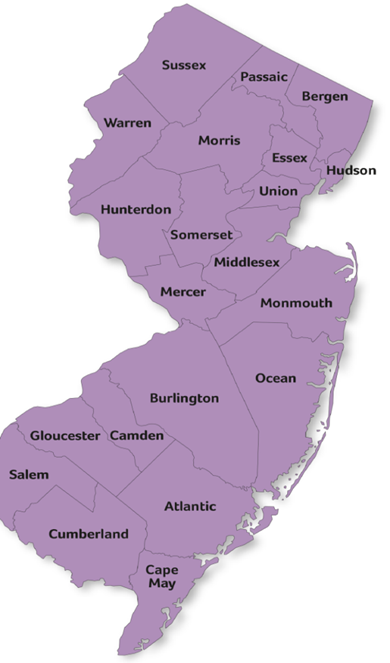TRENTON – In an effort to address the looming evictions crisis, legislation sponsored by Assemblywoman Britnee Timberlake, State Senators Ronald Rice M. Teresa Ruiz, which phases out the eviction moratorium, provides significant tenant protections and allocates $750 million in rental assistance and utility payment assistance was signed into law Aug. 3 by Governor Phil Murphy.
“The bill provides comprehensive housing eviction prevention and utility assistance for renters who have been financially impacted by the COVID-19 pandemic. The legislation (S-3691) appropriates an additional $500 million for the COVID-19 Emergency Rental Assistance Program (CVERAP) and $250 million for utility assistance, both programs administered by the New Jersey Department of Community Affairs (DCA),” said Assemblywoman Britnee Timberlake, who co-sponsored legislation in the State Assembly.
“The bill also mandates new eviction and foreclosure moratorium deadlines and special eviction protections for tenants who were directly impacted by the pandemic. This legislation will ensure that New Jersey’s eviction moratorium continues through August for all state residents with household incomes below 120% Area Medium Income (AMI) and through the end of the year for certain households with incomes below 80% AMI.”
“This provides a lifeline to people who need it most at a time of real crisis. It will help prevent renters from losing the safety and security of their homes and allow landlords to continue to maintain their properties in a safe and secure way. It’s real eviction prevention because it backs up housing protections with finances so tenants aren’t burdened with debt and landlords aren’t forced into bankruptcy,” said Senate President Steve Sweeney (D-Gloucester/Salem/Cumberland).
“Housing and utilities are essential needs that should be protected as we continue to work to emerge from the most challenging crisis of our lifetime. I want to praise Senator Stack, Senator Ruiz, Senator Rice and Senator Singleton for their productive work with advocates and other public officials to develop this plan. It is a wise use of federal funds to address two of the most serious threats caused by the pandemic.”
“As a long-time Newark resident, I understand the struggles most families are going through and have dealt with long before the pandemic. Large majorities of Newark residents are renters, and a significant portion of that group was rent-burdened even before the pandemic started. And yet, they are a portion of all New Jersey renters who owe about $2 billion in back-rent and utilities,” said Senator Rice (D-Essex).
“There are countless numbers of other cities and towns across the state that also have struggling renters. Simultaneously, I recognize many landlords are at risk of foreclosure or bankruptcy due to uncollected rent. Any loss of residential properties would be catastrophic to both tenants and the municipalities. This is why we introduced this bill we want to be decisive and prevent both evictions and foreclosures.”
“Residents here in Newark and around the state were hit hard during the COVID-19 pandemic, resulting in unemployment and a loss of income for many. Tenants have been unable to make rent and will face eviction when the moratorium is lifted if there is not a plan in place,” said Senator Ruiz (D-Essex).
“Many are struggling to figure out how to make up for past rent payments as the state begins to re-open over a year after the declaration of the state of emergency. Individuals should not have to worry about being displaced as the state, itself, is working to get back on its feet. This program, coupled with my court navigation legislation, will divert residents away from eviction court while providing them a means of rent assistance and ensuring property owners are able to recuperate the money lost due to missed payments.”
The new law, formerly S-3691, will protect low, moderate and middle-income households from residential evictions based upon nonpayment or consistently late rent payments accrued between March 1, 2020, and August 31, 2021. Additionally, eviction cases will move from the Landlord/Tenant Court to a small claims civil court to prevent evictions and turn back-rent into civil debt to pay-off over time.
The law will also establish the “Eviction Prevention Program” to supplement the COVID-19 Emergency Rental Assistance Program Phase II started in March by the Department of Community Affairs. The program is funded by $750 million in federal assistance, with $500 million dedicated to rental assistance and up to $250 million for utility assistance. Eviction protections will continue until August 31, 2021, for those making over 80 percent of the area median income. The eviction moratorium will be in place until December 31 2021 for those with very low, low and moderate incomes.
According to Moody’s Analytics and the Urban Institute, an estimated 9.4 million U.S. renter households owed an average of $5,586 in back-rent, utilities and other bills as of January 2021. In total, the countrywide back-rent debt is around $52.6 billion. According to the New Jersey Apartment Association, tenants across the state alone owe around an estimated $2 billion in back-rent.
There are currently tens of thousands of eviction cases pending statewide and another 194,000 filings expected by 2022. Separately, according to the New Jersey Division of Rate Counsel, close to 500,000 residential utility customers in debt is on the cusp of being disconnected from both their electricity and gas services.


